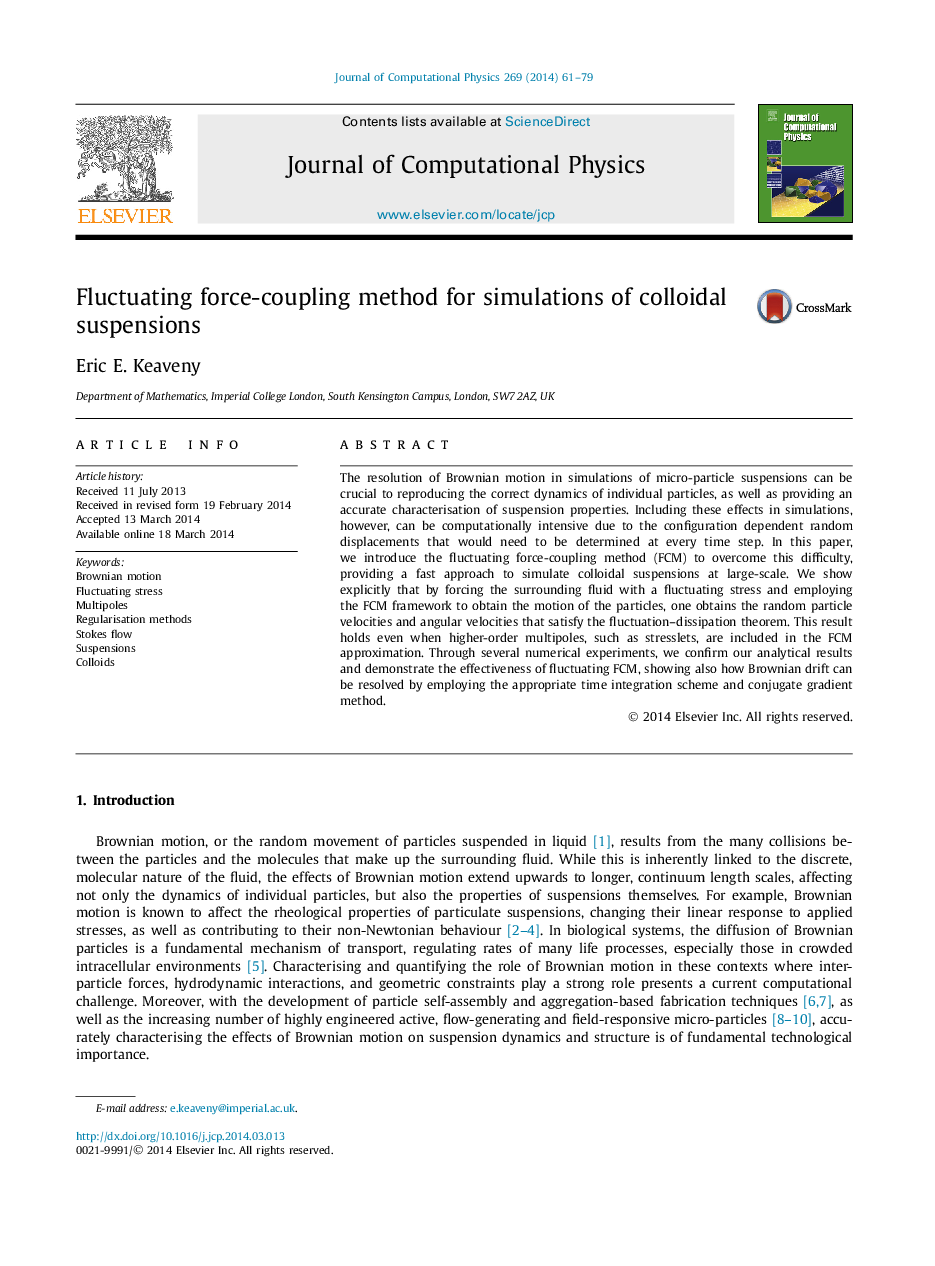| Article ID | Journal | Published Year | Pages | File Type |
|---|---|---|---|---|
| 520145 | Journal of Computational Physics | 2014 | 19 Pages |
The resolution of Brownian motion in simulations of micro-particle suspensions can be crucial to reproducing the correct dynamics of individual particles, as well as providing an accurate characterisation of suspension properties. Including these effects in simulations, however, can be computationally intensive due to the configuration dependent random displacements that would need to be determined at every time step. In this paper, we introduce the fluctuating force-coupling method (FCM) to overcome this difficulty, providing a fast approach to simulate colloidal suspensions at large-scale. We show explicitly that by forcing the surrounding fluid with a fluctuating stress and employing the FCM framework to obtain the motion of the particles, one obtains the random particle velocities and angular velocities that satisfy the fluctuation–dissipation theorem. This result holds even when higher-order multipoles, such as stresslets, are included in the FCM approximation. Through several numerical experiments, we confirm our analytical results and demonstrate the effectiveness of fluctuating FCM, showing also how Brownian drift can be resolved by employing the appropriate time integration scheme and conjugate gradient method.
